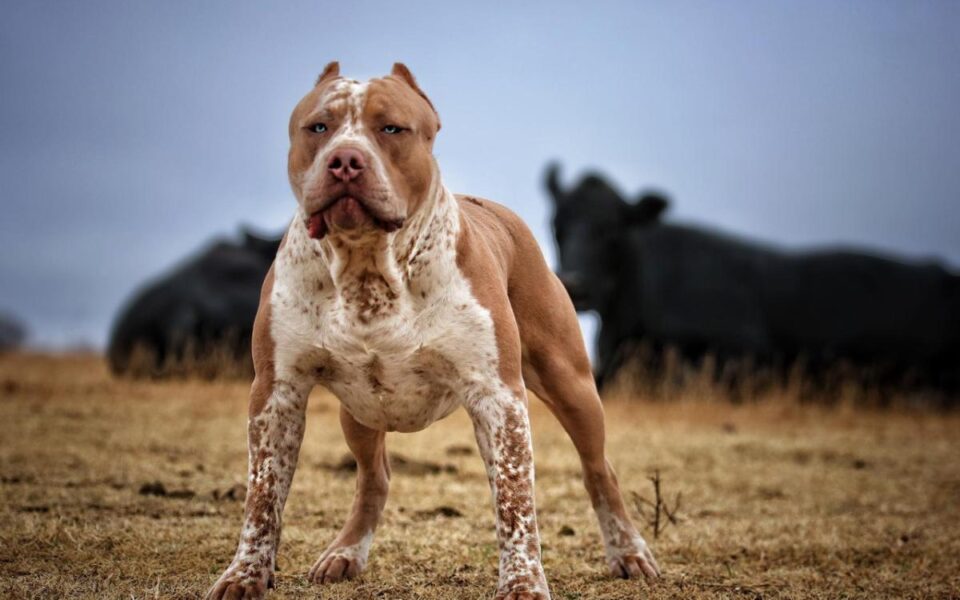Just like the rest of us, as pit bulls become elderly, they experience physical and mental changes that can affect their quality of life. As an owner, it’s important to understand these changes and adjust your care accordingly so your pet can age gracefully. Below are four things to consider:
Diet
A balanced diet is important for pit bulls of all ages, but especially as they get older. As pit bulls age, their metabolism and likely their activity level, will slow down and they’ll need fewer calories to maintain their weight. Excess calories translate to excess weight which places unnecessary stress on joints.
Additionally, maintaining muscle mass and energy levels may be a struggle as your pit bull ages. Diets that are higher in quality proteins may help combat these struggles; however, too much protein can place extra stress on your pit bull’s kidneys. Your veterinarian can provide guidance regarding your dog’s body condition and recommend any necessary dietary changes.
Reading Suggestion: Pitbull Black Panther
Exercise
Exercise is essential for pit bulls of all ages, but it can become more difficult as they get older. That’s okay, exercise in their golden years doesn’t have to look the same as when your pittie was a pup. You can make adjustments to the type, rigor, and amount of exercise you encourage for your dog.
Gentle walks, light play, and swimming are great ways to provide low-impact exercise for older pit bulls. Higher impact exercises, such as running, jumping, and rough play, can put unnecessary strain on joints and should be re-evaluated regularly to see if they are helpful or hurtful for your tenacious friend.
Whatever type of exercise your pit bull enjoys, it is important that it is a regular part of their routine. In addition to maintaining a healthy weight, appropriate exercise can contribute to heart health, better mobility, and help stave off cognitive decline.
Health check
Regular veterinary checkups are essential for older pit bulls. As dogs age, they become more susceptible to developing any number of health conditions, ranging from metabolic diseases like diabetes to diseases of internal organs such as kidney disease.
Your veterinarian will likely want to see your older pit bull biannually to screen for any changes in their health. During a health evaluation, your veterinarian will perform a thorough physical examination and may recommend blood tests to assess organ function. In addition to monitoring for disease, your vet will assess your pet’s body condition and can make recommendations regarding diet and exercise as mentioned above.
Reading Recommendation: Pitbull Dachshund Mix; All You Need to Know About Pitbull Dachshund Mix Dog
Quality of life
As dogs age, they may suffer discomfort and decreased ability to engage in activities they used to enjoy. Sometimes there are simple solutions such as raised food and water bowls for dogs with arthritic necks or anti-slip mats to provide sure-footing throughout the home, etc. Other times, your pet may need routine medical intervention such as daily anti-inflammatory medication or alternative therapies such as massage, physical therapy, and acupuncture.
And sometimes there isn’t much that can be done to improve their quality of life and the focus changes to palliative care. Wherever your pit bull is on their journey, it is important to have tools for objectively monitoring your dog’s quality of life such as this questionnaire.
These assessments are best done multiple times over the course of several days or weeks. Keeping a calendar of “good days” and “not so good days” can help you gain a broader picture of your pet’s condition. Additionally, speaking to individuals who don’t see your pet daily, whether family, friends, or your veterinarian, can help identify significant changes that may have occurred gradually.
Your pit bull deserves the best that their golden years have to offer. You can help your indomitable friend enjoy a happy and comfortable retirement through love, attention, and attending to changes in their needs.









